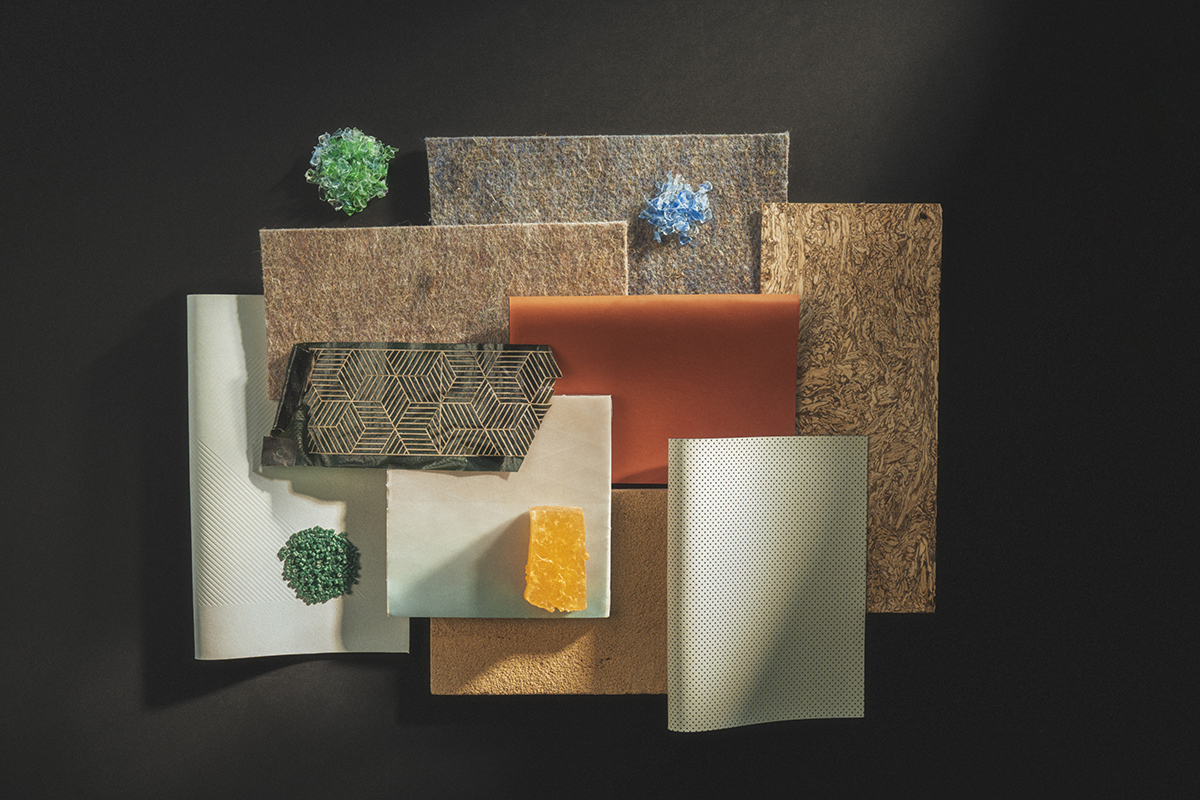We have entered a new era of sustainability—one where businesses are creating new products using innovative materials and processes that will ultimately be more sustainable for the environment. We don’t have to look any further than our cars to find such innovation. The first EV (electric vehicle) came onto the scene back in the 1800s, and automotive hybrid technology became more widespread in the late 1990s. Now we are beginning to see a new type of sustainable vehicle emerge onto the scene: the vegan car.
Leather-free interiors are here in droves. The BMW Group is one of the latest automakers to announce its plans to launch its first vehicles featuring completely vegan interiors in 2023. The BMW Group has for a long time been offering various fabric alternatives to leather. Now it is also possible to offer a suitable substitute for leather for all surfaces including the steering wheel, which must fulfill demanding criteria when it comes to feel, premium appearance, and wear resistance.
BMW Vegan Interiors Reduce Emissions
This new announcement is in line with the automaker’s objective to reduce emissions across the entire lifecycle of a vehicle and reach climate neutrality by 2050 at the latest. Interestingly, material selection has a key role to play in reaching this goal. For example, the new steering wheel surface material reduces CO2e emissions along the value chain by about 85% compared to leather. Up to now, most of the emissions produced, about 80%, were in the form of methane gas from cattle rearing. The remaining 20% was accounted for by processing of the cowhide, which is highly energy-intensive and water-intensive.
As another example, the floor mats for various models are made from mono-material, thus avoiding material mixes that are difficult to recycle. As a result, the BMW Group saves around 23,000 tons of CO2 and an additional 1,600 tons of waste every year, since the recycled floor mats and waste material are also reused within the production process.
Research and development in the field of secondary raw materials and sustainable materials are a top priority for many companies. For BMW, future vehicle generations will offer other alternatives to leather.
The BMW Group says these fully vegan interiors will be available for both BMW and MINI models in 2023 and is serving the demand for vegan and leather-free interiors, which is set to increase further in the near future, particularly in the U.S., China, and Europe.
Driving Forces for Vegan Interiors
This company also isn’t the first to make such a big move. Tesla announced plans to introduce vegan leather, starting with an all-white vegan leather seat option in 2017. Other companies followed. But the reality is synthetic, leather-like materials have been around for centuries.
CleanTechnica suggests synthetic, leather-like materials date back to 15th century China and have varied in popularity ever since. In the West, synthetic leathers have been in production since 1846, when French scientist Louis-Nicolas Ménard first turned gun cotton into Collodion.
It isn’t necessarily a new invention, but rather a new trend, as sustainability gains momentum all around the globe. It seems the initial response to the new materials is good too. PETA conducted a survey of vegan car interiors including all cabin surfaces—from seats to trim to steering wheels. The results ran the gamut, from cars that come standard with vegan interiors to brands that offer wool-free and leather-free interiors upon request and those that fail to offer any vegan interior options at all.
Standouts in PETA’s survey include the plush, high-performing vegan leather interiors that come standard in the Polestar 2 and the Tesla Model 3. Other car manufacturers that offer numerous vegan interior options, either as standard or upon request, include Citroën, Dacia, Ford, Honda, Jaguar Land Rover, Mercedes-Benz, Peugeot, Renault, and Toyota.
All in all, this points to a new automotive trend. Say goodbye to leather interiors and combustion engines. Sustainability is taking hold in our cars. Are you ready to drive a sustainable future?
Want to tweet about this article? Use hashtags #IoT #sustainability #AI #5G #cloud #edge #futureofwork #digitaltransformation #green #ecosystem #environmental #circularworld


